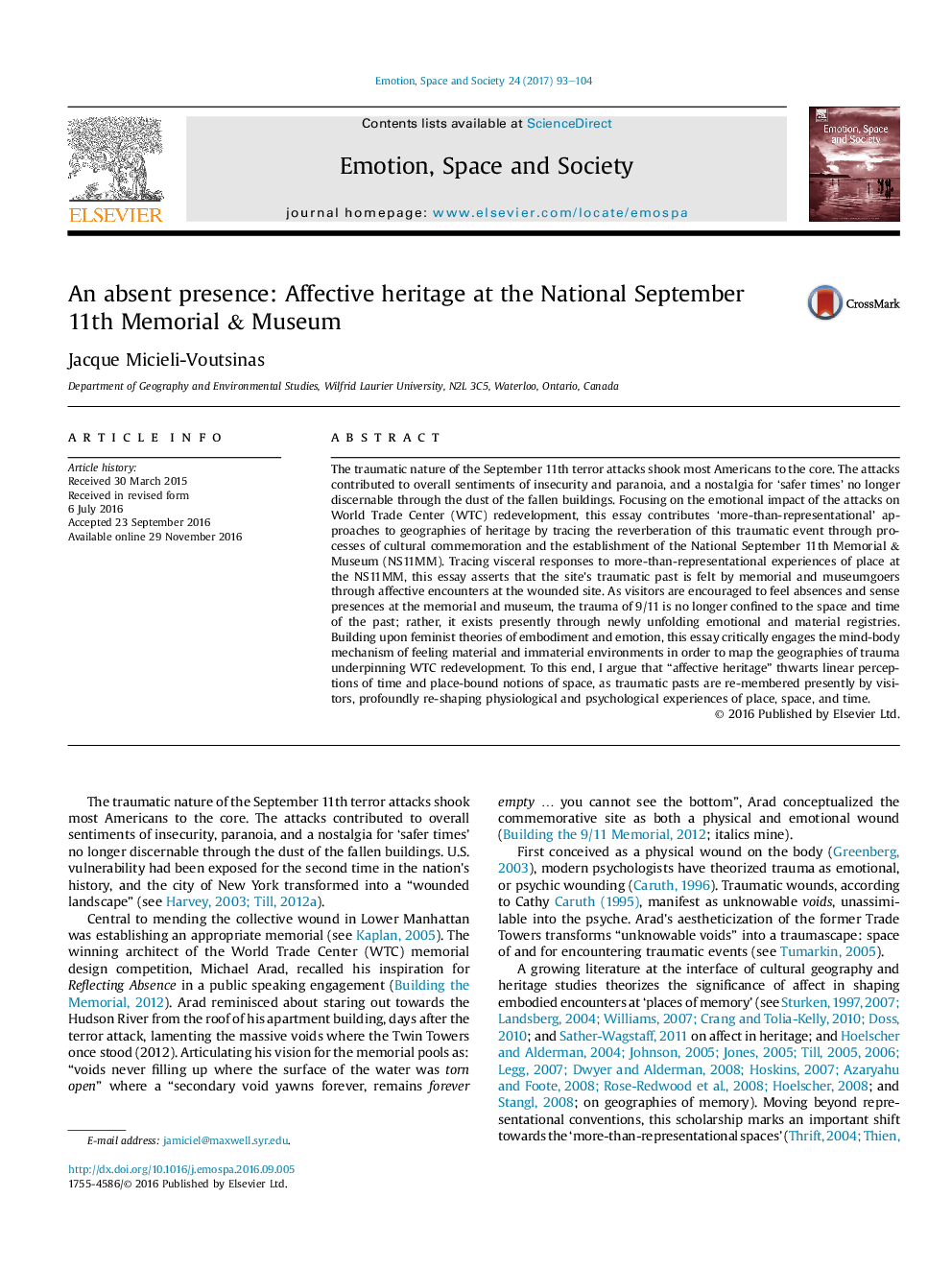| Article ID | Journal | Published Year | Pages | File Type |
|---|---|---|---|---|
| 5045460 | Emotion, Space and Society | 2017 | 12 Pages |
The traumatic nature of the September 11th terror attacks shook most Americans to the core. The attacks contributed to overall sentiments of insecurity and paranoia, and a nostalgia for 'safer times' no longer discernable through the dust of the fallen buildings. Focusing on the emotional impact of the attacks on World Trade Center (WTC) redevelopment, this essay contributes 'more-than-representational' approaches to geographies of heritage by tracing the reverberation of this traumatic event through processes of cultural commemoration and the establishment of the National September 11th Memorial & Museum (NS11MM). Tracing visceral responses to more-than-representational experiences of place at the NS11MM, this essay asserts that the site's traumatic past is felt by memorial and museumgoers through affective encounters at the wounded site. As visitors are encouraged to feel absences and sense presences at the memorial and museum, the trauma of 9/11 is no longer confined to the space and time of the past; rather, it exists presently through newly unfolding emotional and material registries. Building upon feminist theories of embodiment and emotion, this essay critically engages the mind-body mechanism of feeling material and immaterial environments in order to map the geographies of trauma underpinning WTC redevelopment. To this end, I argue that “affective heritage” thwarts linear perceptions of time and place-bound notions of space, as traumatic pasts are re-membered presently by visitors, profoundly re-shaping physiological and psychological experiences of place, space, and time.
